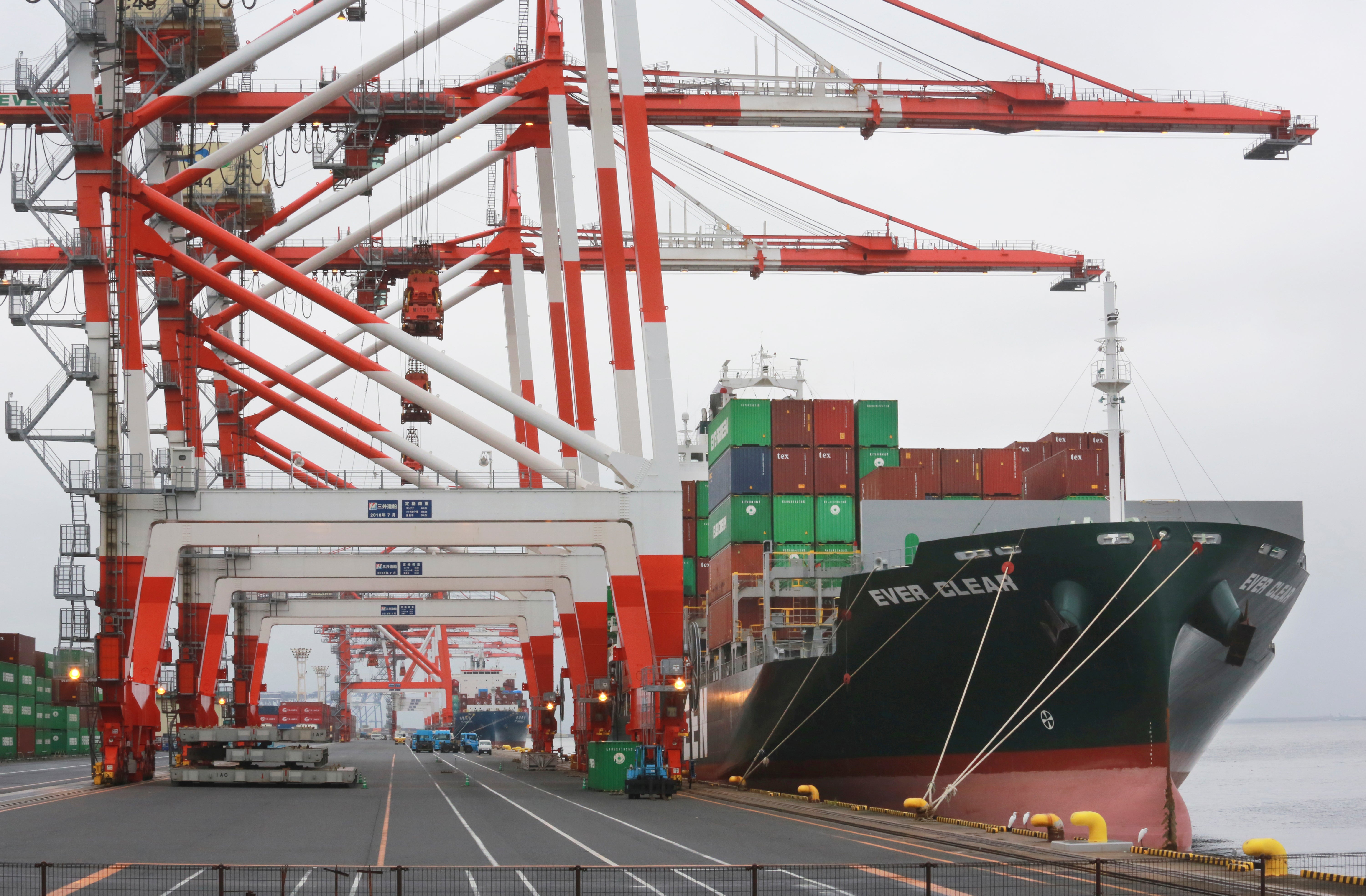Japan trade recovers as supply chain troubles ease
Japan has reported its exports jumped 20% and imports rose at an even faster pace in November as disruptions to manufacturing supply chains eased

Japan s exports jumped 20% and imports rose at an even faster pace in November as disruptions to manufacturing supply chains eased.
Preliminary trade data reported Thursday showed imports surging nearly 44% from a year earlier, pulling the country into a deficit, as surging oil prices pushed costs sharply higher.
Iron and steel exports jumped 88%, while exports of vehicles and other transport equipment rose 20%. Shipments of computer chips also revived, rising more than 20%.
“The jump in exports in November suggests that most supply chain constraints in the automobile sector had already eased last month. We think that exports will remain strong over the coming months as motor vehicle exports recover further and external demand for capital goods continues to rise," Tom Learmouth of Capital Economics said in a commentary.
However, global growth in trade has been moderating at a time when a new wave of coronavirus cases in many countries could stall recoveries from the pandemic.
The 7.4 trillion yen ($64 billion) in exports compared with 6.1 trillion yen in November 2020. Imports rose to 8.3 trillion yen ($72 billion), leaving a deficit of 954.8 billion yen ($8.36 billion).
Japan's exports to the U.S. rose 10% from a year earlier to 1.3 trillion yen ($11 billion), while imports from the U.S. soared 43% to 855 billion yen ($7.5 billion).
Exports to China Japan's biggest overseas market, climbed 16% to 1.6 trillion yen ($14 billion). Japan's imports from China rose 17% to nearly 2 trillion yen ($17 billion).
Imports from the Middle East mainly of crude oil, more than doubled thanks to the rise in oil prices from pandemic lows in 2020. But Japan also imported more soy beans, iron ore, good and manufacturing inputs such as chemicals and semiconductors.
“Looking ahead, we expect a further normalization in auto production and the robust capital goods demand to support exports," Norihiro Yamaguchi, senior economist at Oxford Economics said in a report. “However, the recovery is likely to be moderate amid slower global trade growth partially due to weaker growth momentum in China."
Bookmark popover
Removed from bookmarks